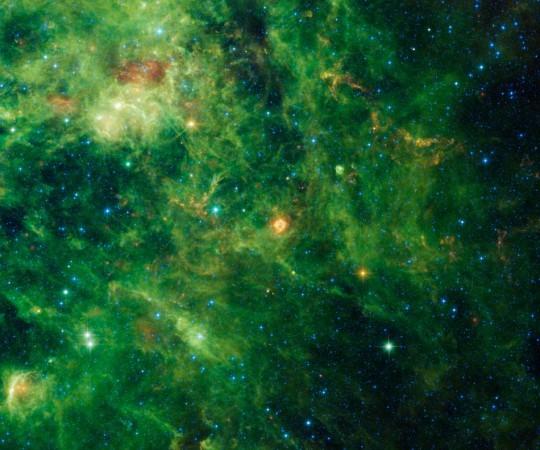
Primordial Black Holes are small pieces of mass weighing tons that are suspected to have come into existence at the time of Big Bang and as a result of collision were left floating in the Universe.
Physicists have pointed out that the impact of the black holes hitting the earth's surface would have a very negligible impact. Scientist pointed out that though the impact will be negligible their presence can be figured out through equipment and knowhow available.
Katherine Mack of the University of Cambridge said there were equal chances of invisible material or mass that weighs tons existing in the universe with equal chances it could have got evaporated to dissolve in our atmosphere, according to the New Scientist.
Shravan Hanasoge from Princeton University and his colleagues have run simulation experiments to evaluate the effect of a billion ton black hole or PBH hitting the surface of the earth.
In his observation Hanasoge pointed out that if a black hole was to hit the earth's surface, a long hole as thick as a needle would appear at the point of contact, where the black hole made contact with the surface of earth. He said though there would not be any sound or major impact, the presence of the black hole could be detected through at the time of exit of the black hole penetrating the outer layer of our earth's surface from the other side.
The exit of the black hole from the outer surface would create seismic waves through vibration, which would be observed by all seismic detectors around the globe. The point of differentiation that would help confirm the exit of a black hole through the crust and core of our planet will be the recordings that will be observed around the globe, unlike seismic activity detected at the time of earthquakes which is region specific.
The exciting bit for scientists is the assistance, a black hole colliding with the surface of the earth could provide to understand the theories on the Big Bang and the evolution of species.
"It gives us insight into what happened in the early universe that is hard to get at otherwise," Mack says. Finding something left over from the earliest moments of the universe "is like a message in a bottle from the big bang straight to us. It gives us a very direct picture of what happened at that time. And that's extremely exciting," according to the New Scientist.

















